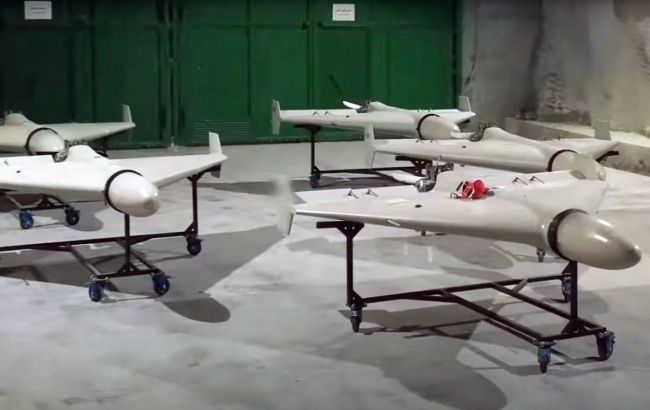U.S. imposes sanctions on companies over Iranian drone production
 Illustrative photo: U.S. imposes sanctions on companies over Iranian drone production (defence-ua.com)
Illustrative photo: U.S. imposes sanctions on companies over Iranian drone production (defence-ua.com)
The U.S. Departments of Justice, Homeland Security, and Treasury have prepared sanctions against legal entities and individuals from several countries involved in Iran's drone production, reports the U.S. Treasury Department.
Today, on December 19, the Office of Foreign Assets Control imposed sanctions on 10 legal entities and 4 individuals based in Iran, Malaysia, Hong Kong, and Indonesia. According to the American side, they support the production of Iranian UAVs.
"This network, led by Iran-based Hossein Hatefi Ardakani, has facilitated the procurement of U.S.- and foreign-origin components worth hundreds of thousands of dollars for the Islamic Revolutionary Guard Corps Aerospace Force Self Sufficiency Jihad Organization (IRGC ASF SSJO) and its UAV program," states the report.
“Iran’s illicit production and proliferation of its deadly UAVs to its terrorist proxies in the Middle East and to Russia continues to exacerbate tensions and prolong conflicts, undermining stability,” said Under Secretary of the Treasury for Terrorism and Financial Intelligence Brian E. Nelson.
According to him, the United States, in close coordination with their allies and partners, will continue to use the full range of tools and authorities to "disrupt these illicit procurement networks, as well as hold accountable the individuals and entities who seek to support them.”
Iran's cooperation with Russia and supply of drones
Since the beginning of the full-scale invasion, Russia has enlisted Iran's help in supplying Shahed kamikaze drones. Since then, Russia has regularly used these barrage munitions to attack Ukraine's military and civilian infrastructure. Because of this, Iran is subject to numerous sanctions.
In the summer, the coordinator of the U.S. National Security Council at the White House, John Kirby, said that Iran was actively involved in the construction of a Shahed plant in Russia.
Earlier, The Washington Post reported that Russia is trying to create 6,000 drones by 2025 with the help of Iran. In November, Reuters wrote that, according to satellite images, Russia continues to build a plant for the production of Shaheds, while international sanctions have not yet been imposed.
In November, the Main Intelligence Directorate of the Ministry of Defense of Ukraine said that Iran could still supply Russia with small batches of Shaheds. However, Ukrainian intelligence did not record any active movement of drones to the aggressor country at that time.
Last week, the UK's sanctions against Iran came into effect. The restrictive measures prohibit the export of components for drones. The British government noted that countries around the world can impose transportation sanctions on vessels that violate sanctions or belong to sanctioned persons.

